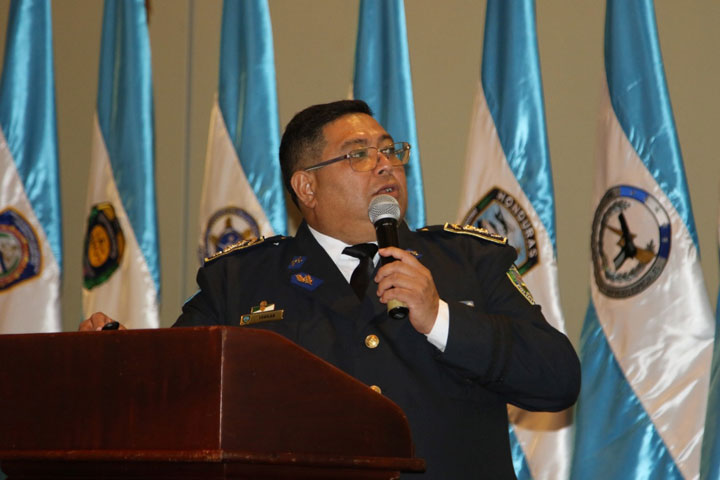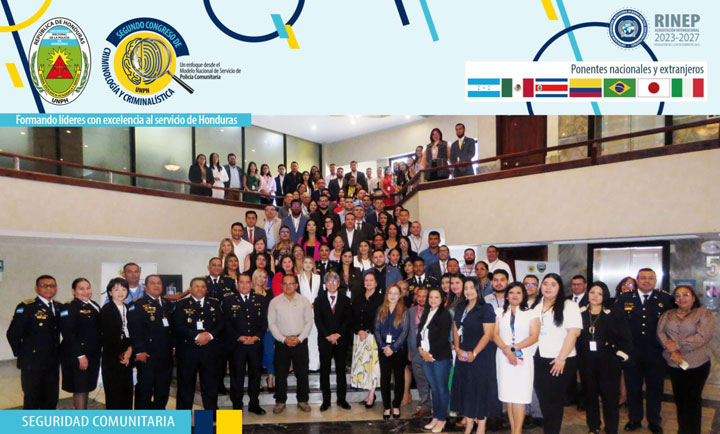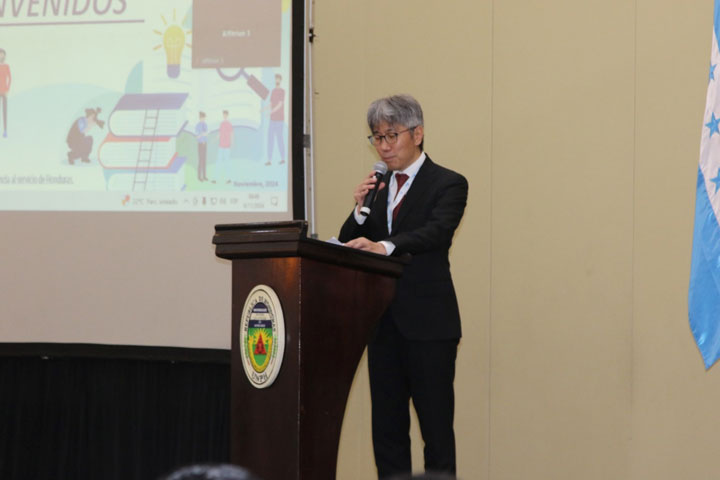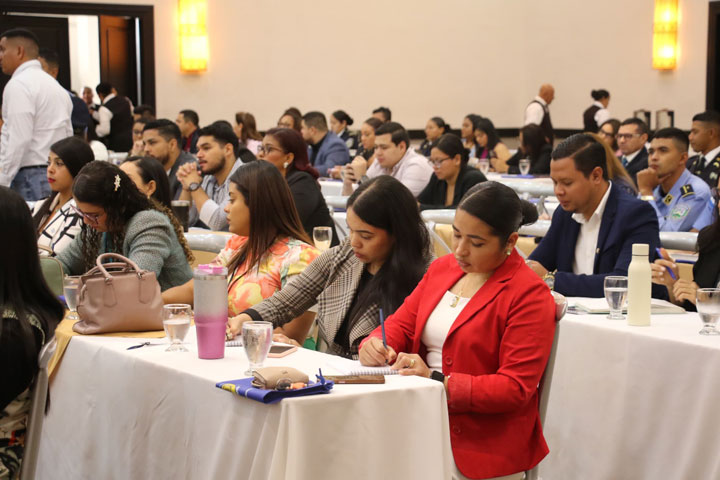2nd Criminology and Investigation Technology Seminar 2024: Approach from the National Community Police Service Model
Day:2024.12.13
event |
Title: 2nd Criminology and Investigation Technology Seminar 2024: Approach from the National Community Police Service Model
Date: November 6th and 7th, 2024
Sponsors: Honduran National Police (co-organized by JICA, implemented as part of the Community Police Project currently being implemented by JICA)
Place: Tegucigalpa, Republic of Honduras (hybrid event)
Presenters:
Superintendent Takuma Kashi, National Police Agency
Gustavo Velázquez, Minister of Public Security
Juan Aguilar, Chief of the National Police
Rogel Maradiaga, Director of Inter-Organizational Cooperation of the National Police
Cesar Ruiz, Director of the Northern Region of the National Police Investigation Bureau
Henry Ponce, Director of the Forensic Medicine Department of the Prosecutor's Office
Oscar Meléndez, Prosecutor of the Prosecutor's Office
Others from Italy, Brazil, Costa Rica, Colombia Experts from Honduras and Mexico made online presentations, total of 21 presenters
Participants:
Police officers, students of the National Police Academy, prosecutors' offices and other law enforcement officials, domestic university officials
In person: 140 people, online: 360 people

Presentation by Juan Aguilar, Director General of the National Police of Honduras
Since 2009, JICA has supported community policing efforts in Honduras through South-South cooperation with Brazil. To date, over 100 trainees have been sent to Brazil to learn the basic theories of community policing, and domestic activities have been carried out mainly by returning trainees. As a result, in 2016, the National Community Police Model was established. The National Community Police Model was approved, and the concept of community policing was stipulated as the basic concept for all police officers in the Police Establishment Law and Police Officer Law. Furthermore, the National Community Police Model will be revised in 2024, and the model is being refined to reflect the experience and lessons learned from past efforts. In this way, JICA's long-term support for the community policing field has steadily produced results.

Regional Police Model of the Honduran National Police
The Honduran Police Academy is one of the few police academies in Latin America, and offers a variety of educational opportunities, including in-service training for police officers, master's programs open to the public, and special courses. In addition to accepting and conducting training for the Guatemalan National Police, the Academy has also had a track record of exchanging knowledge with police officials from other countries in the region and dispatching Honduran police officers in specific fields to provide technical support.
This seminar was held with the aim of the Honduran Police Academy continuing to play a central role in research into security issues in the region and police education, and while focusing on the fields of criminology and criminal investigation, it was also aimed at the cross-sectional application of the National Community Police Model to police work and sharing concepts with citizens participating in the seminar.

Group photo of venue participants

Opening remarks by Mr. Kadoya, Director, JICA Honduras Office
While the introductory theme was criminology and investigative techniques, specific strategies and methods were introduced from various experts and practitioners on how police and local communities can work together to prevent and solve crimes.
Main topics included an introduction to basic theories and techniques in criminology and criminal investigation, the concept of the community policing model, proposals on methodologies for promoting safety and harmony in local communities, and proposals and issues raised from academic and practical perspectives.
Specific examples were shared on how a practical approach based on the National Community Police Model can lead to trust and effective activities of the police in the local community, and through these, participants were able to gain insight into the approach and strategy of the community in police activities in Honduras.
Participants from not only Honduras but also neighboring countries such as Guatemala listened online, promoting information sharing between regions.
In Latin America, which shares the common challenge of security issues, it is expected that the Honduran Police Academy will grow into a leading institution that contributes to improving security in the region as a central institution for research on security issues and police education.
A similar seminar will be held in November 2025, with a focus on the basics of criminology and investigative techniques.

Participants listening attentively
scroll